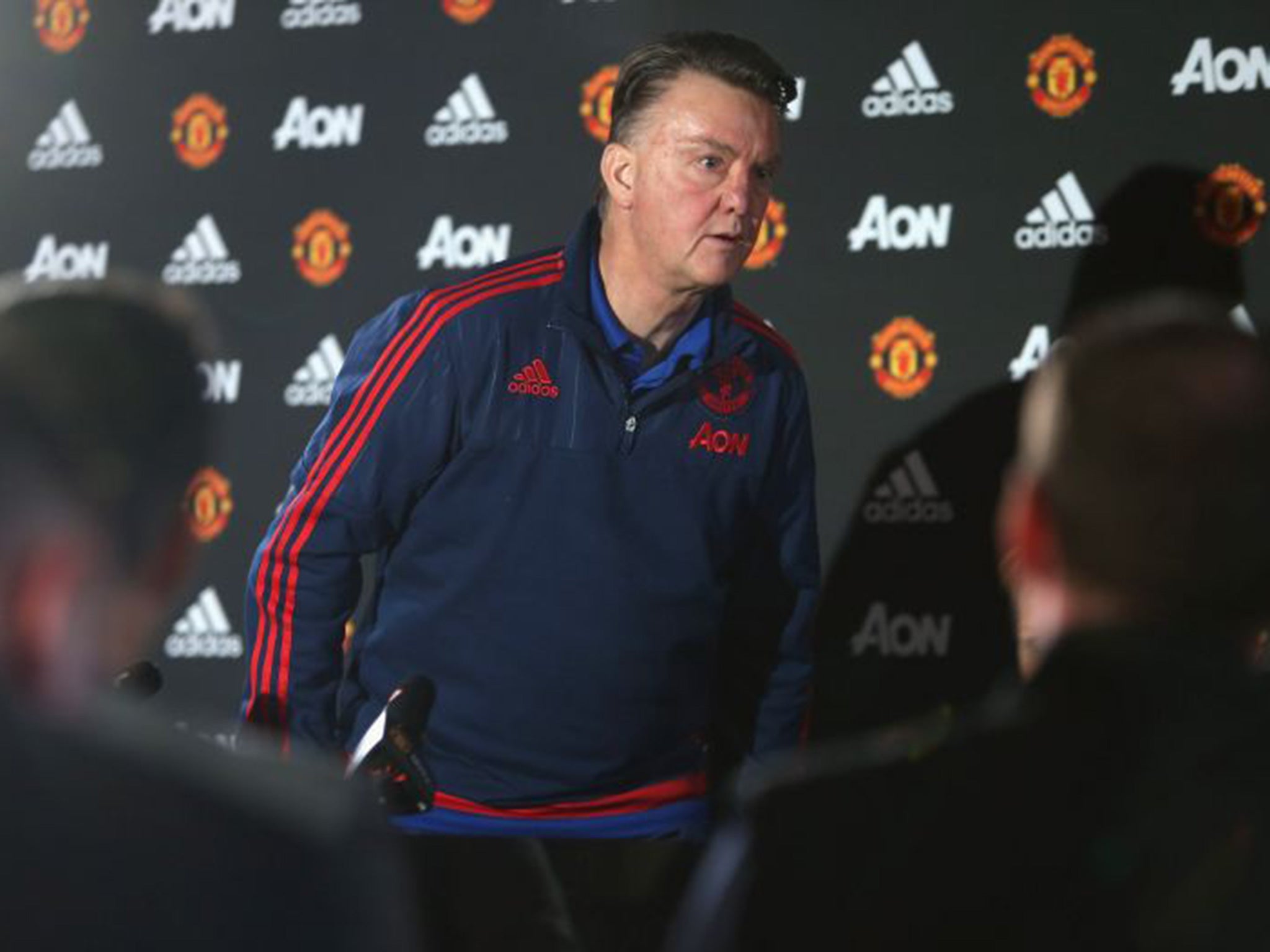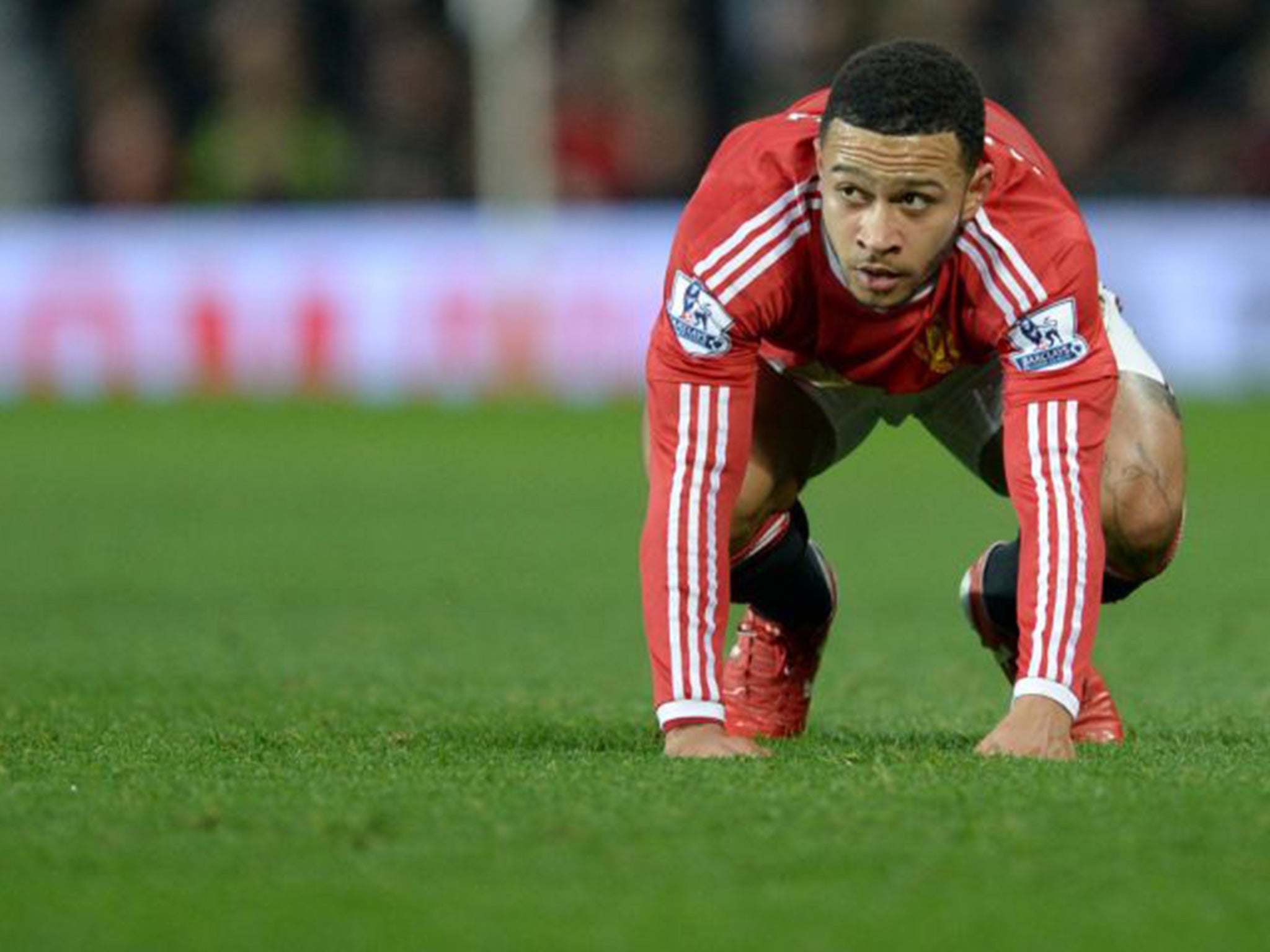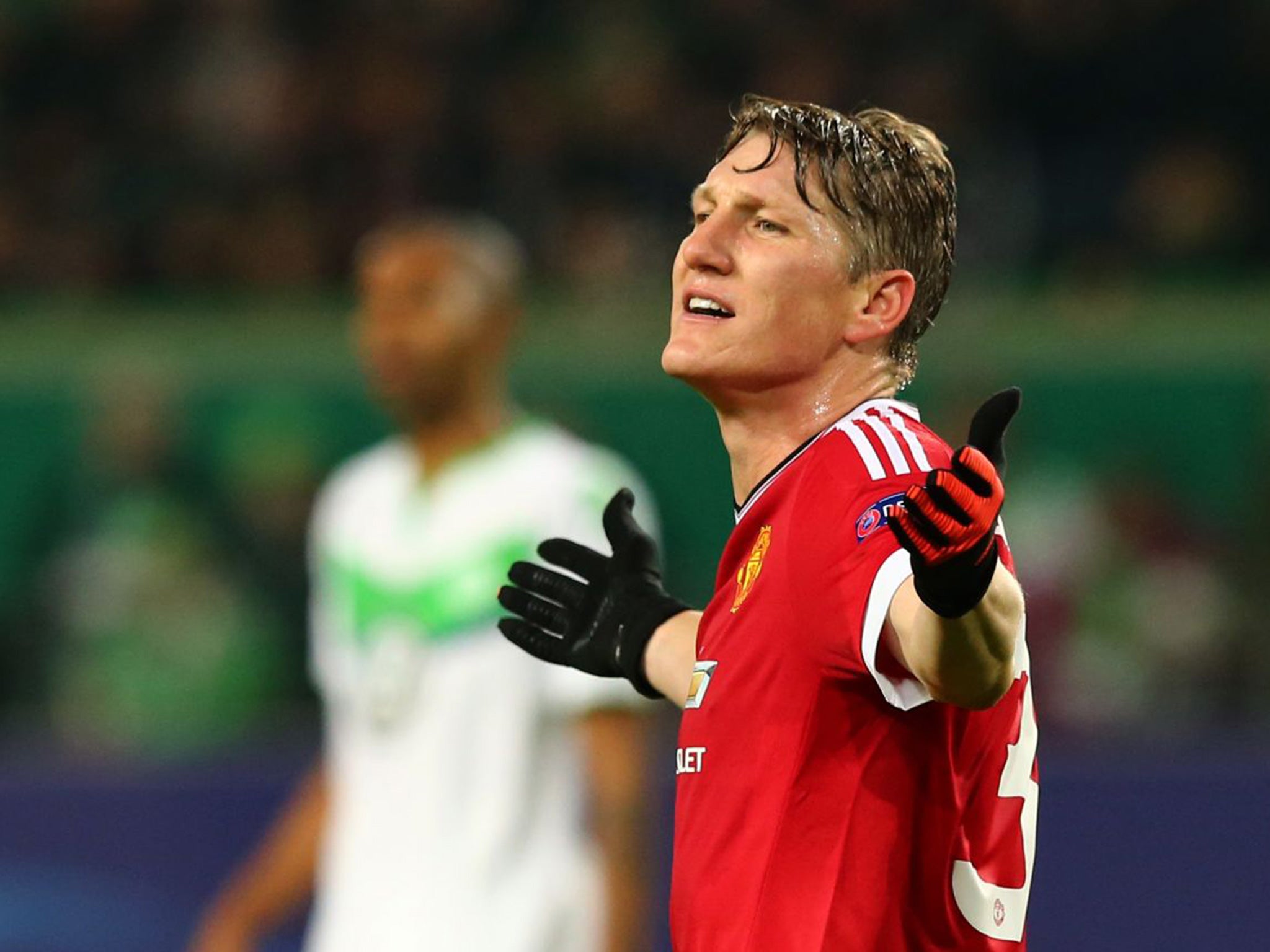Louis van Gaal: Errors in transfer market not helping Manchester United manager's cause
The Dutchman is brilliant at developing youngsters - but if they’re not already at the club his record of buying talent is appalling, writes Ian Herbert

Your support helps us to tell the story
From reproductive rights to climate change to Big Tech, The Independent is on the ground when the story is developing. Whether it's investigating the financials of Elon Musk's pro-Trump PAC or producing our latest documentary, 'The A Word', which shines a light on the American women fighting for reproductive rights, we know how important it is to parse out the facts from the messaging.
At such a critical moment in US history, we need reporters on the ground. Your donation allows us to keep sending journalists to speak to both sides of the story.
The Independent is trusted by Americans across the entire political spectrum. And unlike many other quality news outlets, we choose not to lock Americans out of our reporting and analysis with paywalls. We believe quality journalism should be available to everyone, paid for by those who can afford it.
Your support makes all the difference.There really is no doubting Louis van Gaal’s conviction that the journalists he walked out on during Wednesday's press conference are intellectually inferior to him. Uli Hoeness, the president at Bayern Munich, where it ended badly and abruptly for the Dutchman, once said that he did not so much act like God but “like God’s father”. Yet the arc of his 29-year managerial career reveals one aspect of the job in hand at Manchester United for which Van Gaal has virtually no pedigree. If he survives to see this calendar year out, the blinding evidence of this shortcoming must surely give the club cause for thought.
It is buying players: an extremely significant part of the equation at United, who have spent more than £200m under his management, yet where the best signings of the past two seasons, Luke Shaw and Ander Herrera, were secured before he walked through the door. Analyse the players Van Gaal’s clubs have purchased over the years and you will find only the occasional shrewd buy, generally Dutch. Arjen Robben, whom he brought to Bayern Munich from Real Madrid in 2009, was the only shining light.

Ivan Gabrich is a better illustration of what happens when Van Gaal is asked to invest in an established player. Van Gaal made a big proclamation when signing the Argentine striker to Ajax for around £3.5m in 1996. “He’s not a player who will ever lie on the ground,” the manager declared, defining the player’s unflinching bravery, as he saw it, by way of introduction. The first time the then Ajax forward Ronald de Boer saw Gabrich in training, he declared: “He can’t shoot.” Van Gaal insisted after Gabrich had flopped that he had merely acted on the scouts’ judgement, though the name “Gabrich” has been known in the Netherlands ever since as an example of what can happen if you leave the transfer decisions to the imperious one.
Football’s extraordinarily blinkered way of assuming that the coterie of so-called “world-class coaches” can spot a good player a mile off actually led Liverpool to pursue Van Gaal as their director of football in 2012, after they had relieved Kenny Dalglish of his duties. They might have asked Ajax about the wisdom of this idea, which was torpedoed by Brendan Rodgers’ refusal to work under Van Gaal. (A bullet dodged, there, for Fenway Sports Group.)
Ajax knew that what Van Gaal brought was the former schoolteacher’s ability to inspire young players. Eight of his 13-man 1995 Champions League-winning squad – a constant reference point even now, in his last managerial role – were plucked by him from the club’s academy. That’s why, when they brought him back as technical director in 2004, after Leo Beenhakker’s resignation, the Amsterdam club assigned him the role of developing the academy they call De Toekomst (“The Future”). Ronald Koeman (first-team coach, by then) and general director Arie van Eijden worked on transfers.
Van Gaal wanted a broader remit but his judgement revealed itself when he became involved in a dispute between Zlatan Ibrahimovic and Rafael van der Vaart, whom the Swede had injured during an international between Sweden and the Netherlands. Van Gaal’s method of conflict resolution was to sell Ibrahimovic, to Koeman’s considerable chagrin. In his autobiography Ibrahimovic depicts Van Gaal as an unbearable, soulless tactician who referred to players as numbers. “There was a lot of ‘Five’ goes here and ‘Six’ goes there and I was glad when I could avoid him,” he writes. “I liked Koeman but I couldn’t cope with Van Gaal...”
That fractious relationship bears out how Van Gaal is best left to develop young players. The evidence of his incredible capability to do so has been seen everywhere he has gone: Dennis Bergkamp at Ajax, Xavi Iniesta at Barcelona, Thomas Müller at Bayern. Another very significant part of the pattern is the existence of a father figure within the squad, to help guide. In the Ajax side of 1995 it was Frank Rijkaard. He has wanted that role at United to be played by his beloved “Schweini”: Bastian Schweinsteiger. Regrettably, Schweini is not the player he once was.

The notion of Van Gaal being asked to share the decision-making for the investment of the £59.7m which made Angel Di Maria Britain’s most expensive player last year is questionable, say those who have charted the contours of his career. That is because Van Gaal, with his deeply held belief in the Dutch “fighting” mentality, has rarely got on with or even liked South Americans. “They and he never work out,” says one source. “They like playing on intuition. He hates the idea of football intuition.” There was some astonishment in the Netherlands when Van Gaal included Argentina alongside the Netherlands, Germany and England when he reflected some years back on the national teams he would love to manage. Van Gaal also fell out with Rivaldo and Giovanni during what his biographer, Maarten Meijer, describes as his “Hollandisation” of the Catalan side in 1997.
If United and their manager do weather this storm – with the matches against Stoke and Chelsea pivotal – the question is how they might create a decision-making structure for buying next summer, heading into what would be Van Gaal’s last season. United have their scouts, of course, but no elite Premier League club is in greater need of a technical director to create shape and method to their vast outlay.
To have recruited such an individual in the last 12 months would have been more invaluable and far-sighted than any of the myriad player acquisitions. Not least, because the biggest surprise of all for Van Gaal is thought to be the struggle to bring in the top-bracket player – Müller, Robben, Robert Lewandowski – whom he assumed would follow him to Old Trafford.
Even the recruitment of the Dutchman he trusts has been stymied, by the long struggle of Kevin Strootman – the Roma midfielder he coveted. Strootman has had three knee operations and may finally return in January. Van Gaal now accepts that he must look to players who are not the best in the world which, to be fair, was a method that worked extremely well for Sir Alex Ferguson.
In the absence of the signings he coveted, Van Gaal has done what he always does – look to the youth within, most particularly for his defence. That strategy works only when the young players are at the required level and it has been a struggle for those he has employed at United. The young talents PSV Eindhoven displayed in their Champions League matches with United this autumn revealed how valuable an asset Marcel Brands, that club’s technical director, would be at Old Trafford.
It would take the patience of a saint to work with Van Gaal in that role, of course. Asked once if he had ever read the book I am Always Right by the Dutch author Willem Frederik Hermans, Van Gaal replied in the negative. “A catchy title,” he said, with no apparent irony. “But I would never say that about myself. I would add the nuance: ‘I usually am right’.”
Failing to deliver for United: Van Gaal’s transfer flops
Marcos Rojo (£16m)
Problems with injury amid rumours of rift with LVG
Angel Di Maria (£59.7m)
Struggled to match early form before joining PSG
Victor Valdes (Free)
Played just twice after falling out with Van Gaal
Memphis Depay (£19m)
Dutch winger failed to live up to big-name billing
Matteo Darmian (£12.7m)
Italian began season with promise before injury
Bastian Schweinsteiger (£6m)
Not able to affect games like in his Bayern pomp
Sergio Romero (Free)
Back-up keeper until erratic display against Boro
Join our commenting forum
Join thought-provoking conversations, follow other Independent readers and see their replies
0Comments